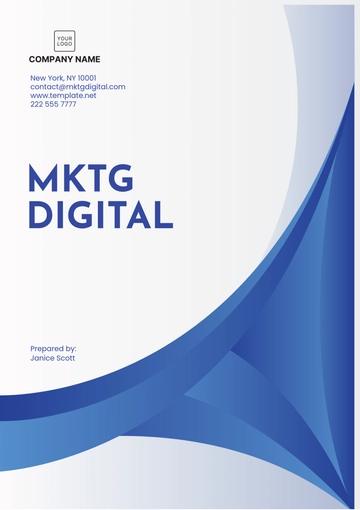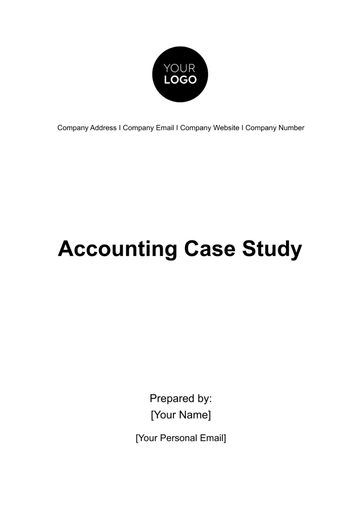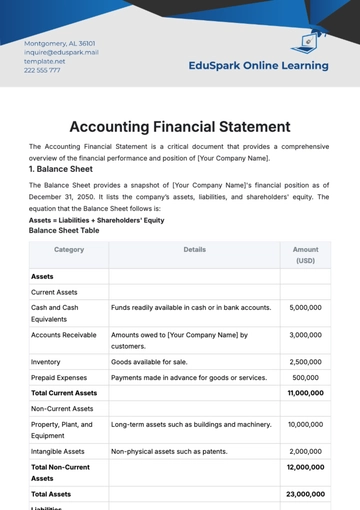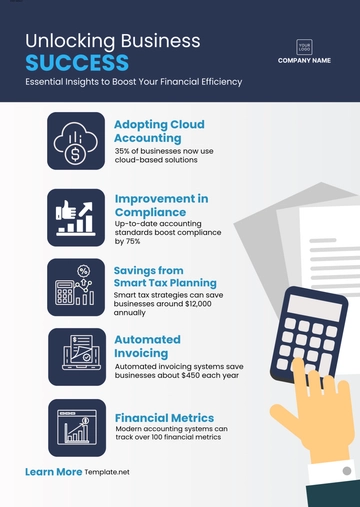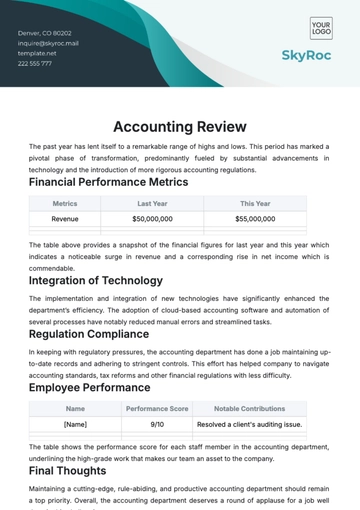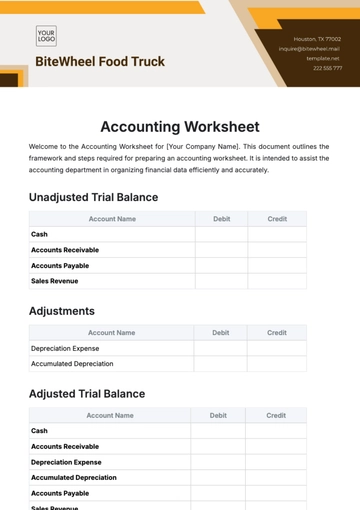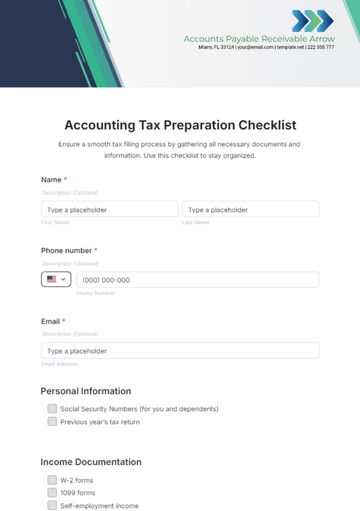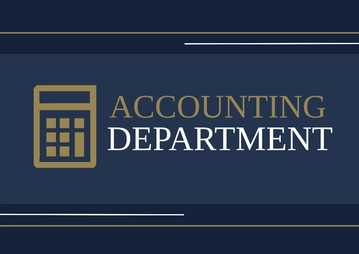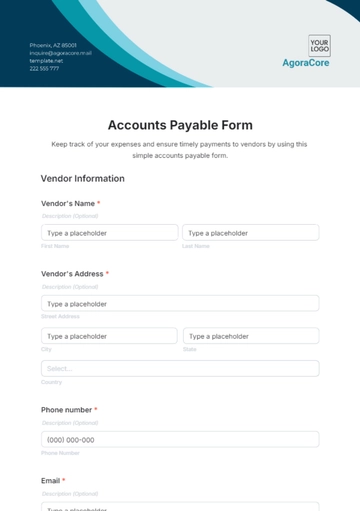Free Internal Audit Accounting Sustainability Study
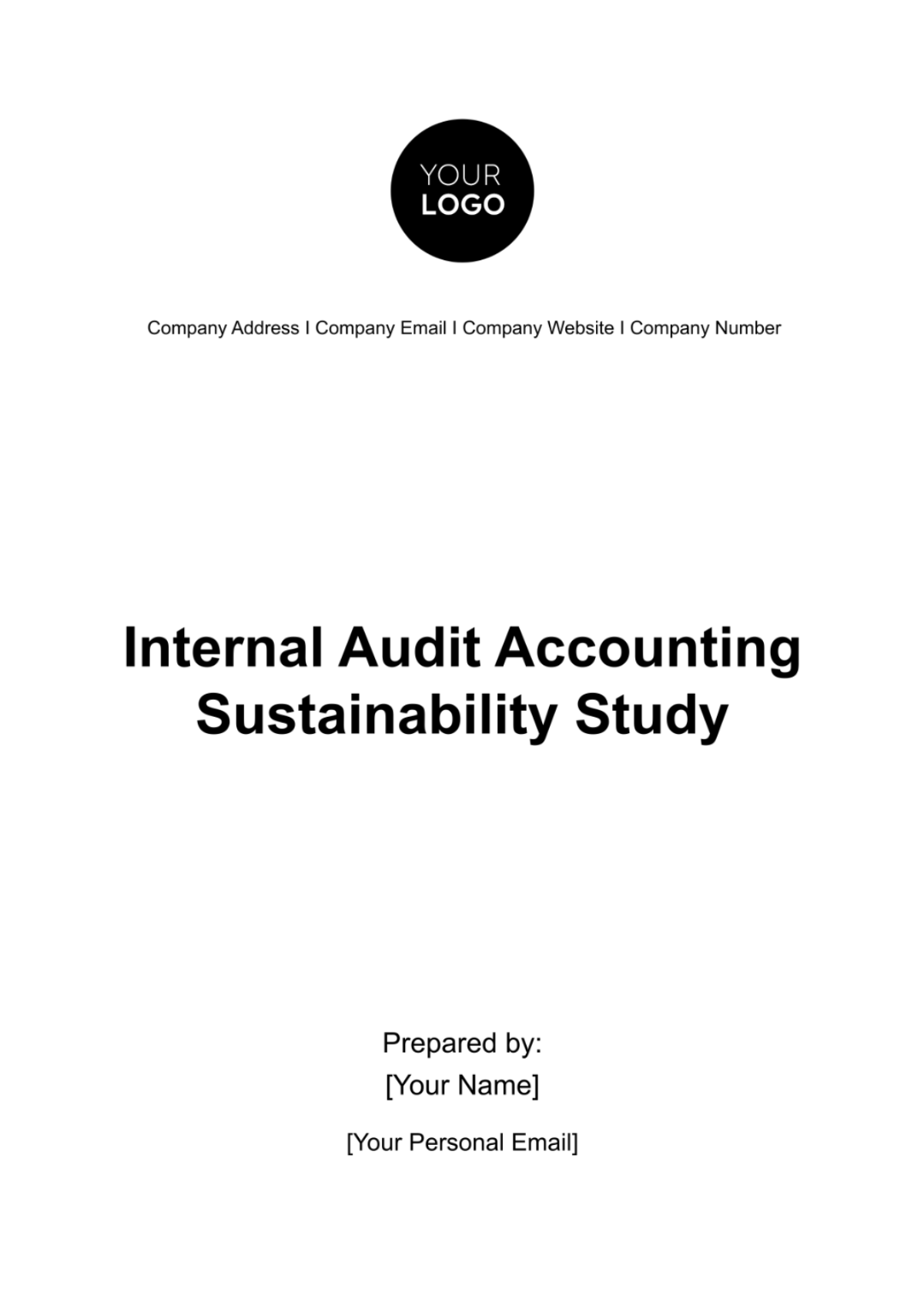
This comprehensive study aims to investigate the role of internal audit within a corporate entity and its contribution to sustainability enforcement. The objective is to establish a link between robust internal audit practices and the enhancement of accounting sustainability.
1. Introduction
The internal audit function stands as a cornerstone in the architectural framework of corporate governance, embodying an indispensable role in augmenting financial integrity and operational efficiency. As an independent and objective assurance and consulting activity, internal audit is designed to add value and improve an organization's operations. It aids an organization in accomplishing its objectives by bringing a systematic, disciplined approach to evaluate and enhance the effectiveness of risk management, control, and governance processes.
In the contemporary business landscape, where transparency and accountability are paramount, the scope of internal auditing has expanded beyond traditional financial audits to encompass a broader spectrum of organizational activities, including operational, compliance, and strategic reviews. This expansion is particularly evident as organizations increasingly prioritize sustainability and corporate responsibility.
Sustainability, in the context of business operations, encompasses more than just environmental stewardship; it involves a holistic approach that integrates environmental, social, and governance (ESG) considerations into strategic decision-making and daily operations. The integration of these factors is driven by a growing recognition of the interconnectedness between an organization's long-term success and its impact on the broader community and environment.
As businesses navigate the complexities of global markets, regulatory landscapes, and societal expectations, internal auditors are uniquely positioned to provide insights and oversight on the effectiveness of sustainability initiatives. By assessing the alignment of ESG factors with organizational goals, internal auditors help ensure that sustainability practices are not only proclaimed in mission statements but are also ingrained in corporate culture and operational processes. This role is vital for identifying and mitigating risks associated with sustainability issues, such as regulatory non-compliance, reputational damage, and operational inefficiencies.
Moreover, internal audit's role in sustainability extends to evaluating the reliability and relevance of reported information on sustainability performance. As stakeholders increasingly demand transparency and accountability in sustainability reporting, internal auditors play a critical role in verifying the accuracy of data and the effectiveness of reporting mechanisms. This function is crucial for maintaining stakeholder trust and for supporting informed decision-making by management and boards of directors.
In essence, the evolution of the internal audit function reflects the shifting paradigms of corporate governance, where financial performance is inseparable from social and environmental responsibility. By integrating sustainability into its core activities, internal audit not only enhances its value proposition but also contributes significantly to the resilience and sustainability of the organizations it serves.
2. Sustainability
The concept of sustainability in the corporate realm has transcended its initial environmental connotations to embody a comprehensive framework that addresses a broad spectrum of Environmental, Social, and Governance (ESG) concerns. This paradigm shift reflects a growing acknowledgment of the intricate interplay between an organization's operational practices and its broader societal and environmental impact. In this context, sustainability is not merely an ethical imperative but a strategic one, closely linked to risk management, innovation, and long-term value creation.
Companies that excel in implementing robust sustainability practices are not only mitigating risks but are also seizing opportunities for innovation and competitive advantage. Sustainable practices can lead to cost savings through more efficient resource use, open new markets, and enhance brand loyalty among consumers increasingly concerned with corporate responsibility. Furthermore, companies with strong sustainability credentials often enjoy better access to capital, as investors are increasingly integrating ESG factors into their investment decisions.
Internal audit's role in promoting sustainability is multifaceted and impactful. By assessing and advising on the management of ESG-related risks and opportunities, internal auditors help ensure that sustainability is not an isolated function but an integral part of the strategic planning and risk management framework. This involves evaluating the adequacy of policies and procedures that govern an organization's sustainability efforts, the effectiveness of sustainability initiatives, and the integration of sustainability considerations into business operations.
Moreover, internal auditors facilitate the alignment of sustainability objectives with overall corporate strategy, ensuring that sustainability initiatives are not only in compliance with regulatory requirements but also aligned with stakeholder expectations and organizational values. This alignment is crucial for building and maintaining trust with stakeholders, including investors, customers, employees, and the community at large.
In performing these roles, internal auditors act as catalysts for change, promoting a culture of sustainability that permeates all levels of the organization. They provide assurance that sustainability practices are both effective and aligned with the organization's strategic objectives, thereby enhancing the organization's resilience, reputation, and long-term success.
3. Methodology
The methodology of this study was meticulously crafted to provide a comprehensive understanding of the nexus between internal audit functions and sustainability practices within organizations. The approach was two-pronged, encompassing both primary and secondary data collection to ensure a holistic analysis.
Primary data was gleaned through a structured survey targeting internal auditors across a diverse array of industries and geographic locations. The survey was designed to elicit detailed insights into the auditors' perceptions and experiences related to their organization's sustainability practices and the specific role of internal audit in fostering, evaluating, and enhancing these practices. Questions were formulated to capture a wide range of information, including the scope and focus of sustainability audits, methodologies employed, challenges encountered, and the perceived impact of internal audit activities on sustainability outcomes.
To complement the survey data, an extensive review of secondary sources was undertaken. This involved analyzing sustainability reports published by the participating organizations, which provided valuable context and allowed for a comparison of reported sustainability practices and outcomes against the insights gained from the survey responses. The analysis of these reports aimed to assess the transparency, comprehensiveness, and reliability of the organizations' sustainability disclosures, as well as to identify trends, best practices, and areas for improvement.
The combination of primary and secondary data provided a robust foundation for the study, enabling a nuanced understanding of the interconnections between internal audit functions and sustainability practices. This methodology ensured the capture of both quantitative data, such as the prevalence and intensity of sustainability-related audit activities, and qualitative insights, such as auditors' perspectives on the challenges and opportunities associated with integrating sustainability into audit practices.
4. Results
Our investigation into the relationship between internal audit capabilities and sustainability performance has revealed insightful patterns that underscore the importance of a well-structured internal audit function in driving sustainable business practices. The data, derived from an analysis of various companies with differing levels of audit quality, point to a clear trend: organizations with more sophisticated and comprehensive internal audit frameworks exhibit higher sustainability scores. This correlation is indicative of the critical role internal audit functions play in not only ensuring regulatory and procedural compliance but also in embedding sustainability into the core operational and strategic processes of a company.
The following table provides a detailed view of the findings:
Company | Audit Quality | Sustainability Score |
|---|---|---|
Company A | High | 85% |
Company B | Medium | 75% |
Company C | Low | 65% |
Company A, characterized by a high audit quality, showcases a robust approach to sustainability, integrating advanced ESG reporting mechanisms, investing in renewable energy, and maintaining active engagement with community stakeholders. These initiatives are supported and enhanced by a proactive internal audit function that regularly assesses the effectiveness and alignment of sustainability efforts with the company's strategic objectives.
Company B, with a medium level of audit quality, demonstrates a commitment to sustainability through significant initiatives like waste reduction, diversity and inclusion, and the development of a sustainable supply chain. However, the slightly lower sustainability score compared to Company A suggests that there may be room for improvement in the integration and oversight of these practices, highlighting an opportunity for the internal audit function to play a more influential role.
Company C, which has a lower audit quality, shows a basic level of engagement with sustainability, primarily focusing on compliance with environmental regulations and some corporate social responsibility (CSR) activities. The relatively lower sustainability score indicates a need for a more structured and strategic approach to sustainability, which could be facilitated by strengthening the internal audit function.
5. Conclusion
The findings of this study elucidate the pivotal role that internal audit functions play in bolstering a company's sustainability endeavors. It is evident that a strong internal audit department does not merely contribute to financial and operational compliance but extends its influence to the realm of sustainability, ensuring that ESG considerations are woven into the fabric of the company's strategic and operational frameworks.
Companies with high audit quality, as exemplified by Company A, not only adhere to best practices in sustainability but also lead the way in innovation and stakeholder engagement, thereby setting industry benchmarks. These organizations demonstrate that when internal audit functions are empowered and equipped with the necessary resources and mandate, they can significantly enhance the scope and impact of sustainability initiatives.
On the other hand, companies with less developed internal audit capabilities, such as Company C, tend to have more rudimentary sustainability programs, often limited to basic compliance and isolated CSR activities. This underscores the potential for growth and improvement through the strategic enhancement of internal audit functions, which can drive more integrated, strategic, and impactful sustainability practices.
In light of these insights, it is recommended that organizations across all sectors recognize and leverage the strategic value of their internal audit functions in advancing sustainability goals. By doing so, they can not only enhance their sustainability scores but also contribute more effectively to global sustainability objectives, thereby achieving long-term success and resilience in an increasingly complex and interconnected business environment.
References
[References will be cited here]
- 100% Customizable, free editor
- Access 1 Million+ Templates, photo’s & graphics
- Download or share as a template
- Click and replace photos, graphics, text, backgrounds
- Resize, crop, AI write & more
- Access advanced editor
Template.net offers a versatile Internal Audit Accounting Sustainability Study Template, seamlessly editable with our cutting-edge AI editor tool. Streamline your auditing process with this comprehensive template, featuring meticulously designed sections for financial analysis, sustainability evaluation, and compliance assessment. Elevate your reporting efficiency today with Template.net's user-friendly, customizable solution.







